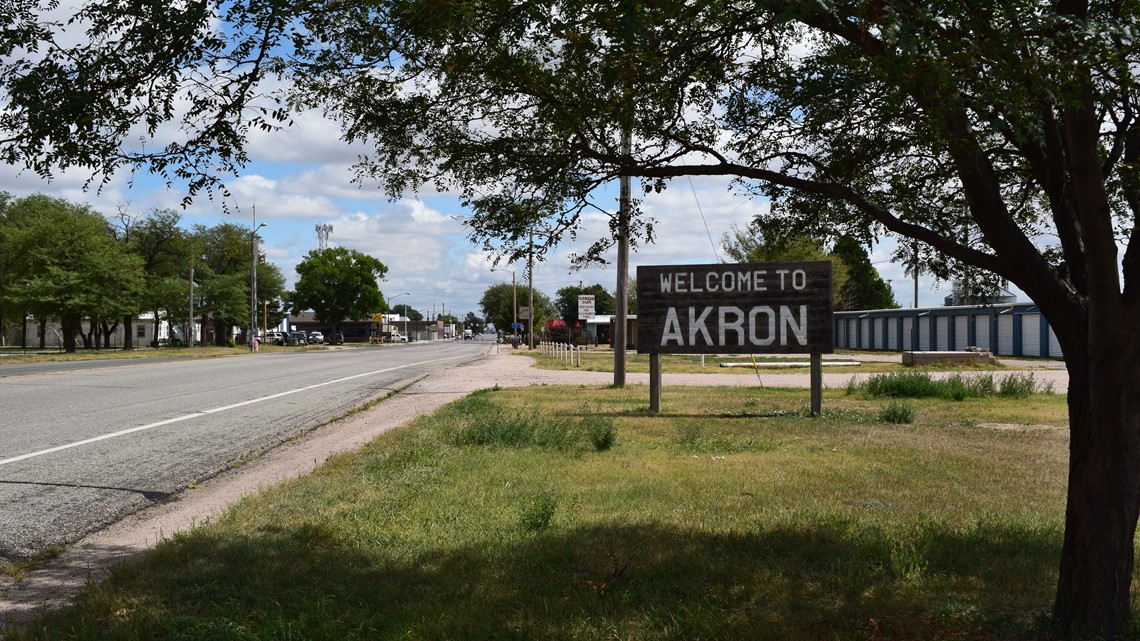Exploring the History of Akron, Colorado

Situated on the eastern plains of Colorado, Akron is a small town with a rich history that reflects the pioneering spirit and resilience of its early settlers. From its beginnings as a railroad town to its evolution into a vibrant agricultural community, Akron's story is a testament to the enduring values of hard work, community, and perseverance.
Railroad Era and Early Settlement:
The history of Akron dates back to the late 19th century when the Denver, South Park and Pacific Railroad extended its line through the area. The railroad played a crucial role in the town's development, providing a vital link to markets and transportation routes for settlers and businesses.
The arrival of the railroad spurred the establishment of Akron as a town, with businesses, homes, and services springing up along the rail line. The town quickly became a bustling hub of activity, attracting settlers seeking new opportunities in the fertile plains of eastern Colorado.
Agricultural Expansion and Prosperity:
With the fertile soil and abundant water supply from nearby rivers, agriculture soon became the backbone of Akron's economy. Settlers cultivated crops such as wheat, corn, barley, and sugar beets, transforming the plains into a patchwork of farms and ranches.
The introduction of irrigation technology further boosted agricultural production, allowing farmers to grow crops more efficiently and sustainably. The agricultural boom brought prosperity to Akron, attracting new residents and businesses to the area and fueling the town's growth and development.
Community Building and Social Life:
Life in Akron revolved around the rhythms of rural living, with residents forming close-knit communities based on shared values of hard work, self-reliance, and neighborly support. Churches, schools, and social organizations provided opportunities for residents to come together, share experiences, and build lasting relationships.
Community events, festivals, and celebrations played an important role in the social life of Akron, offering opportunities for residents to celebrate their shared heritage and traditions. From county fairs to Fourth of July parades, these gatherings fostered a sense of pride and belonging among the town's residents.
Challenges and Resilience:
Like many towns on the eastern plains, Akron faced challenges over the years, including droughts, economic downturns, and changes in agricultural practices. Despite these obstacles, the people of Akron remained resilient, adapting to changing conditions and finding new ways to sustain their way of life.
Efforts to diversify the local economy, promote tourism, and attract new businesses have helped to revitalize Akron and ensure its continued prosperity in the 21st century. While the town may have changed over the years, its pioneering spirit and sense of community remain as strong as ever.
Preserving Heritage and Looking to the Future:
Today, Akron is a thriving community that honors its rich history while embracing the opportunities and challenges of the modern world. Historic buildings, museums, and landmarks serve as reminders of the town's past, while community events and festivals celebrate Akron's unique identity and spirit.
As Akron continues to grow and evolve, its residents are committed to preserving their heritage and building a bright future for generations to come. Through cooperation, innovation, and a shared sense of purpose, the people of Akron are writing new chapters in the town's storied history, ensuring that its legacy will endure for years to come.
- Hits: 29